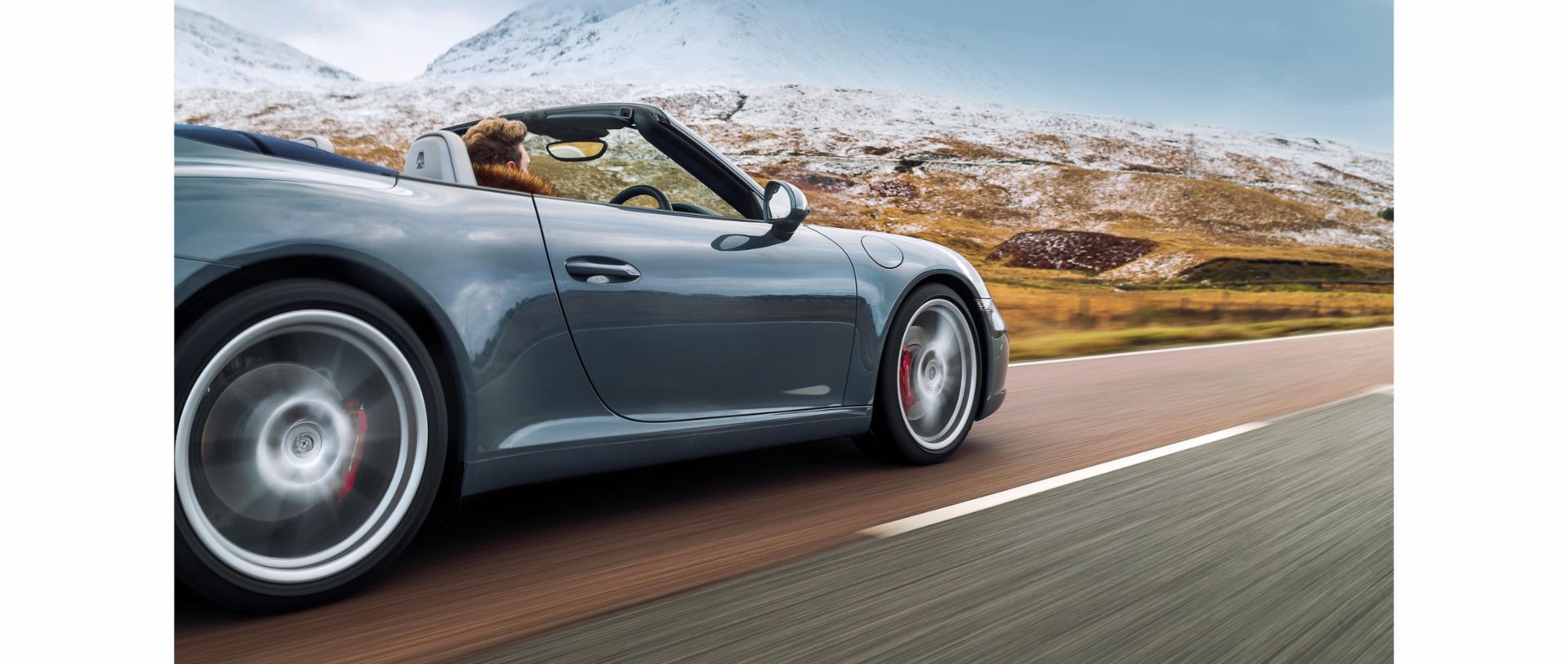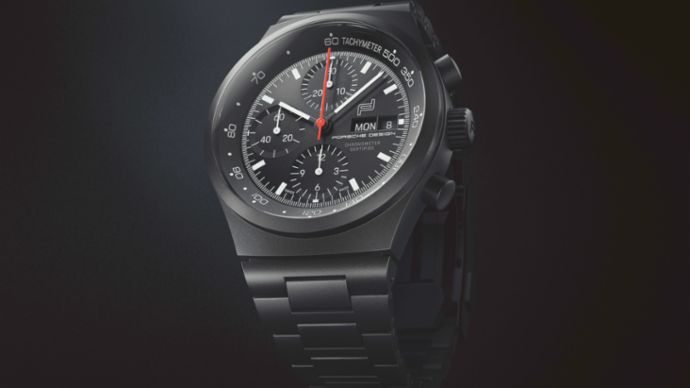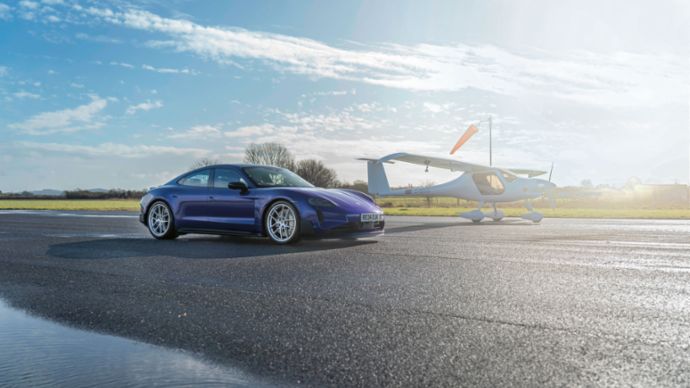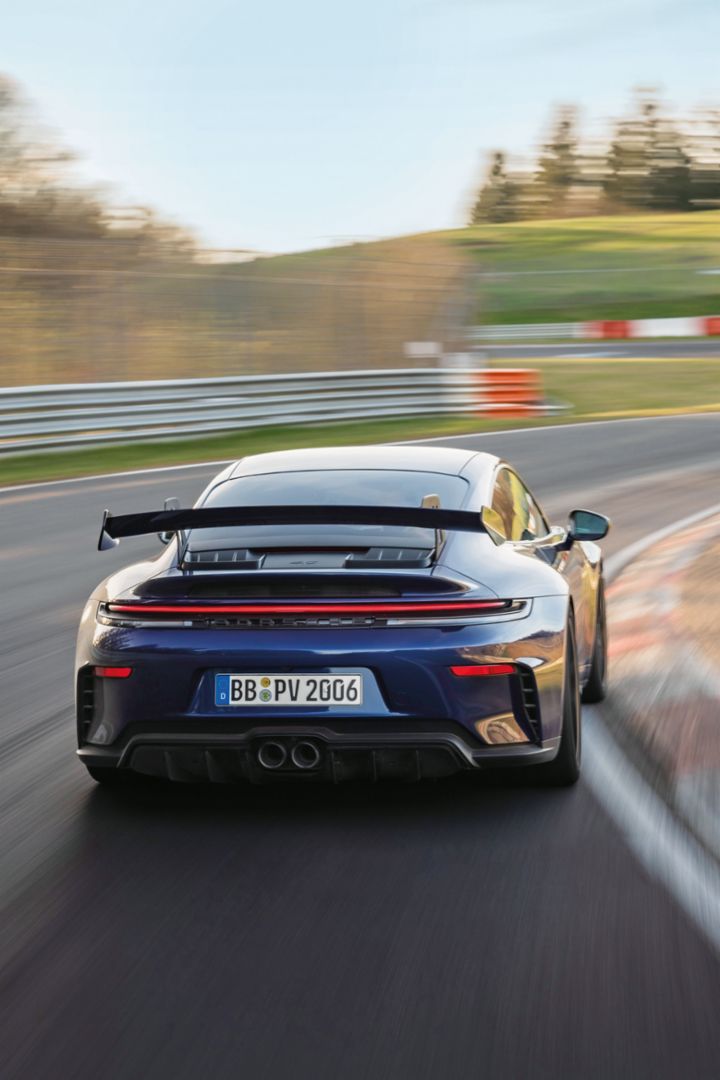Time to get your winter boots on
Porsche Great Britain – Winter driving: With summer a distant memory, some high-performance cars could be heading for hibernation. But choosing to fit Porsche winter tyres will help keep your driving experience safe and enjoyable as the dark nights and cold weather set in
The winter months bring with them a catalogue of driving challenges. Shorter days, wetter weather, the prospect of snow and ice and the guarantee of lower temperatures. And it is this last element, often overlooked in the grand scheme of things, that has the greatest impact on both driver performance and safety.
Modern tyres, although a world away from those of yesteryear, are nevertheless at the mercy of even modest temperature changes. The magic number is recognised as 7C, below which the rubber compound in traditional summer tyres hardens.
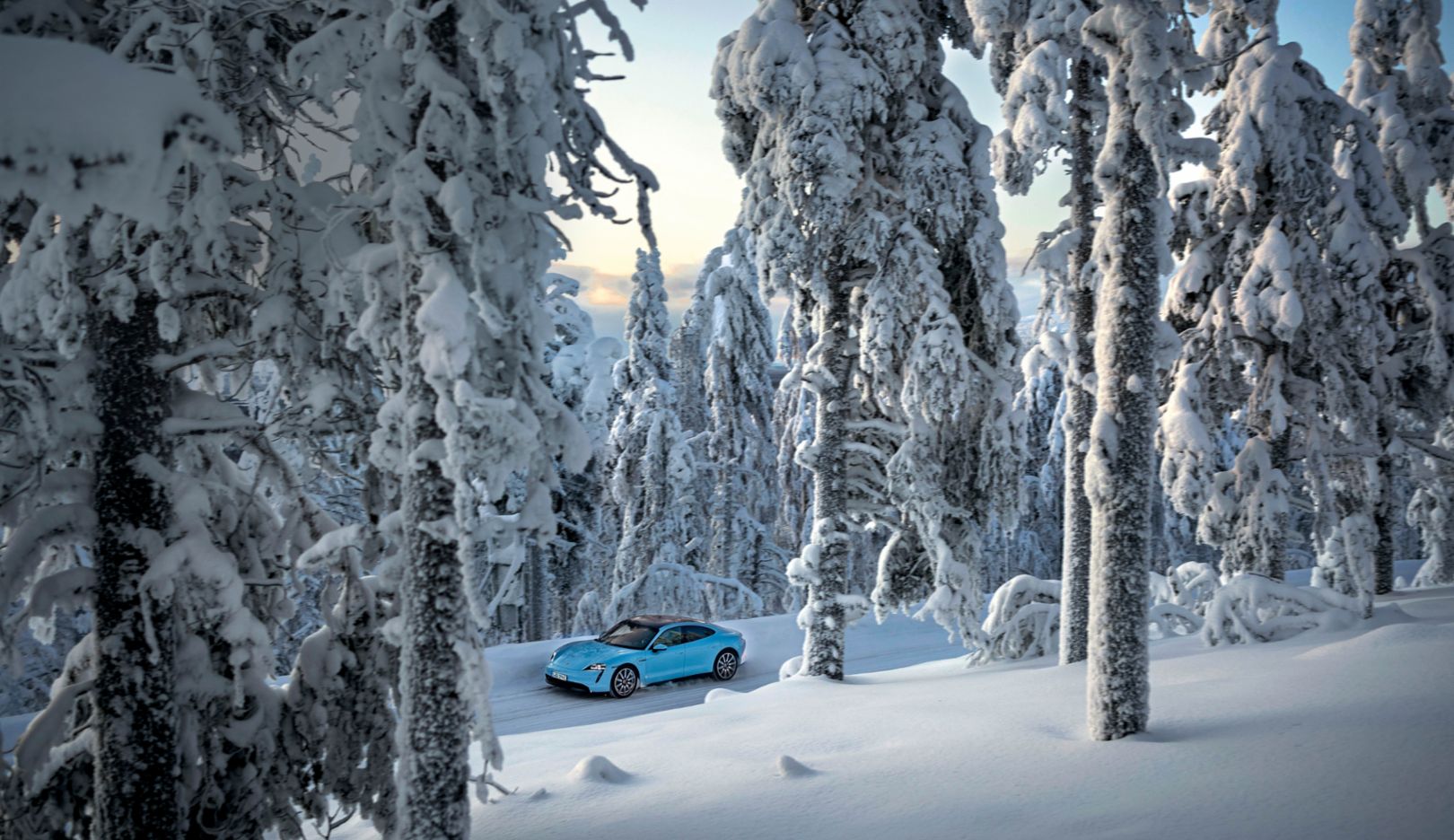
The temperature fall causes a drop in the all-round performance of your car, which can increase braking distances by up to 12 per cent. With an average winter temperature of around 4C in the UK, this is something that affects everyone on the road at some point, and more so those commuting five days a week during the colder mornings and evenings.
Despite being mandatory in many European countries, winter tyres remain an elective element of UK motoring, with the majority of drivers using summer tyres all year round. But fitting winter tyres to your Porsche will deliver big improvements in performance and safety, as Gordon Robertson, Chief Driving Consultant at Silverstone’s Porsche Experience Centre, explains: ‘Winter tyres are made of a different compound, and the pattern of tread cut into them has more sipes (small slits in the tread block). They’re acting in essence like a deck shoe, so that when you put weight on the tyres, the sipes spread open and suck the tyre to the ground,’ says Robertson.
The N-rated winter tyres developed by Porsche undergo a rigorous three- to four-year program covering around 370,000 test miles, with around 30,000 tyres tested to destruction for each individual model.
In winter, braking distances increase by up to 12 per cent
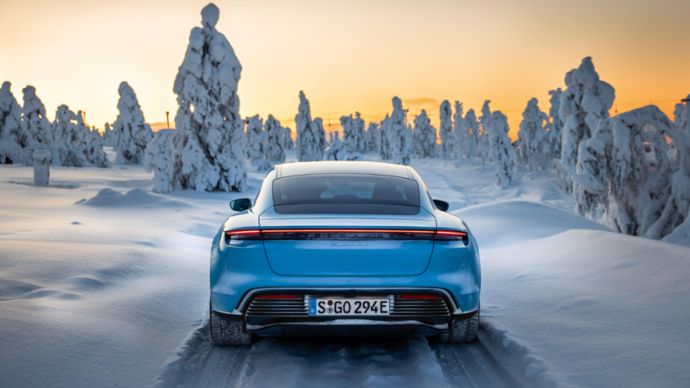
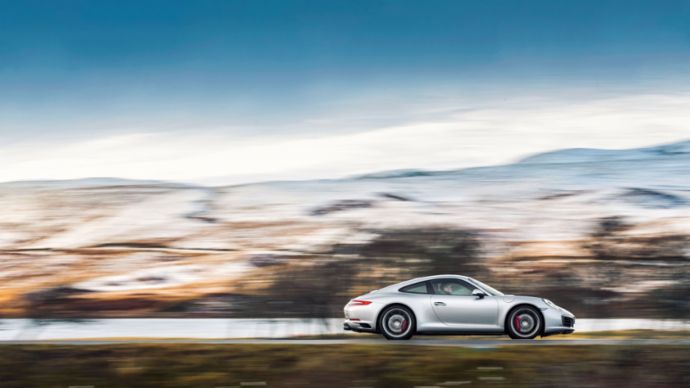
Let it snow: enjoy your Porsche all year round
That ‘N’ stems from the Nürburgring, the German circuit where much of this testing is undertaken by the team of Porsche development drivers and tyre engineers. Over the years Porsche has created a range of N-rated winter tyres in partnership with numerous other automotive manufacturers, all optimised to the specific requirements of each model, with particular attention paid to short braking distances.
What, if any, are the drawbacks of winter tyres on a Porsche? ‘You might, for example, feel a difference in top-end performance on a dry track with a Porsche 911 on winter tyres,’ Robertson says. ‘Throwing it around a handling circuit, you would feel a little more understeer [where the car’s nose pushes wide in a corner] and oversteer [where the rear of the car slides out] on a perfectly dry, warm surface. But the minute that surface becomes wet or cold, you’ll have a huge advantage. The difference then is night and day between a winter and summer tyre.’
Robertson, a Porsche instructor for 22 years, recommends switching to winter tyres in October, even if your car is all-wheel drive. ‘Years ago, a Porsche engineer gave me a great analogy about this. He said running a summer tyre in winter is a bit like trying to drill steel with a wood bit. It doesn’t matter how powerful the drill is if the bit is wrong. And it doesn’t matter how many wheels are driving if they’ve got no grip.’
Regarding all-season tyres, Robertson advises against them when it comes to driving a high-performance car like a Porsche. The correct season-specific N-rated tyre will make your driving experience more rewarding and safer.
Robertson adds a final word: ‘No matter how well you’ve prepared your car for winter, you don’t want a false sense of security. You still need to respect the fact that there’s a reduced amount of grip, and to remember most other cars around you won’t be on winter tyres. So they’ll still take longer to stop or change direction, even if you don’t.’
FURTHER INFORMATION
Visit porsche.com/uk and click on Accessories & Service/Genuine Porsche Tequipment/Wheels/Winter Tyres, or contact your local Porsche Centre.
Consumption data
911 GT3
Taycan Turbo GT
-
21.2 – 20.5 kWh/100 km
-
0 g/km
-
A Class
